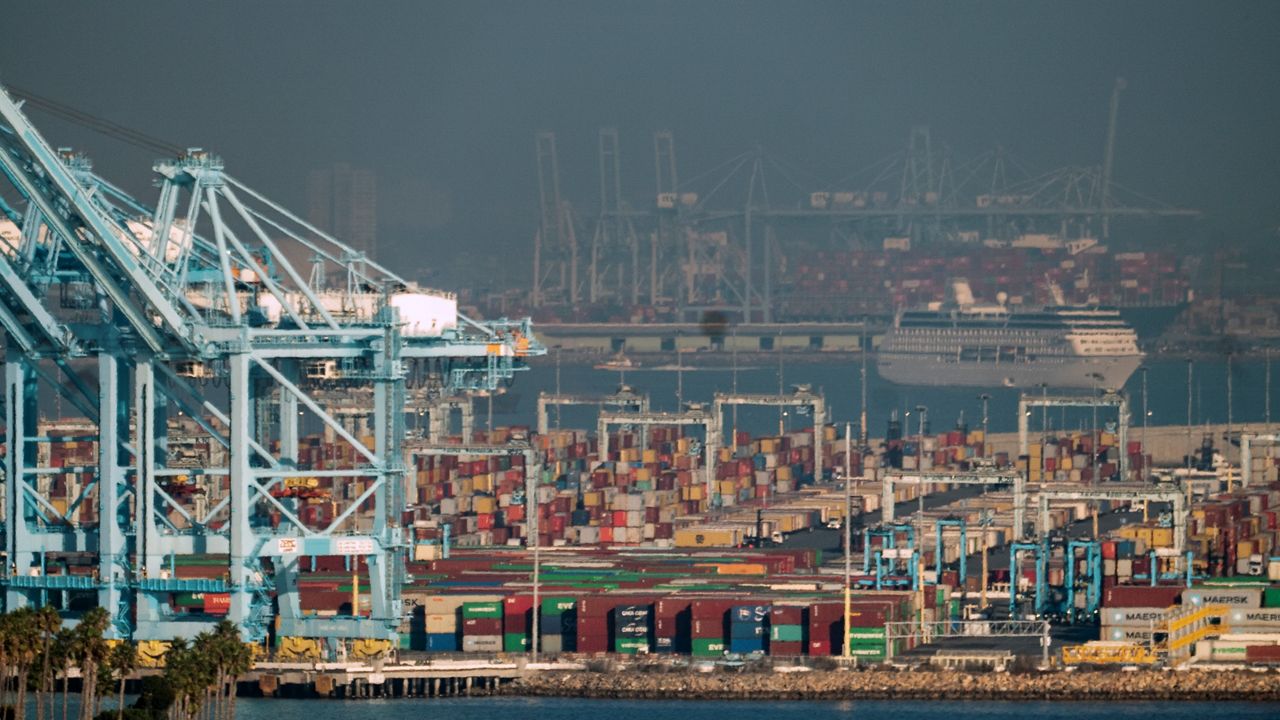LOS ANGELES — The Port of Los Angeles saw more than 2 million shipments moved across marine terminals in the first quarter of 2024, a 30% increase over last year, officials announced Wednesday.
The port handled 743,427 container units in March, a 19% increase over the same time last year, which was also the eighth consecutive month of year-over-year growth. Overall, the increase in cargo movement in the first quarter of 2024 was one of the port's "best," behind only a pandemic import surge in 2021 and 2022, according to port officials.
"Moving into April and the second quarter, I expect robust cargo flow to continue here," Gene Seroka, executive director of the port, said during an online briefing Wednesday. "A strong job market and continued consumer spending, along with our ability to handle additional volume, will help drive cargo to Los Angeles in the coming months."
In March, loaded imports landed at 379,542 twenty-foot equivalent units, up 19% compared to the previous year. Loaded exports came in at 144,718 TEUs, an increase of 47% compared to last year.
The port processed 219,158 empty containers, up 7% over 2023.
Seroka noted challenges as a result of security and supply chain impacts, in particular the Baltimore bridge collapse in March. The Francis Scott Key Bridge at the Port of Baltimore collapsed after a cargo ship crashed into it, killing six construction workers, who were working on the bridge.
"We're deeply concerned about the businesses, the workforce and the many people who are experiencing a severe economic impact because of this incident," Seroka said. "Despite some disruptions, our nation's supply chains and its leaders have once again demonstrated resiliency."
The Port of Long Beach also reported similar growth, moving 654,082 TEUs in March, an increase of 8.3% from the same period last year. Imports increased by 302,521 TEUs, as well as movement of 246,464 empty containers.
Anne Neuberger, deputy national security advisor for cyber and emerging technology to President Joe Biden, joined Seroka to discuss cyber security.
Following the Baltimore bridge collapse, Biden issued an executive order to secure cybersecurity at ports across the country -- although the Baltimore incident was not considered an intentional act.
"We're in a period where we're seeing rising security attacks from countries and criminals alike," Neuberger said. "Notably, criminals have conducted almost 5,000 ransomware attacks around the world."
She added, "Biden's approach has been to say we really need to lock our digital doors, ensure that cybersecurity practices are put in place by critical services from food to water systems, to commerce systems, to ensure that those attacks do not happen."



